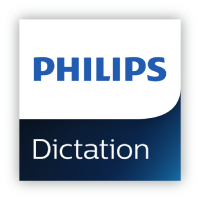 By Legal Futures Associate Philips Dictation
By Legal Futures Associate Philips Dictation
How many anecdotes about technology solutions that will never work for the workplace have you heard in your work life? Yet some time later we find ourselves using said technologies and are amazed how quickly they have become indispensable to get our work done. Today, we break down a few common technology myths that are still prevalent in the legal industry.
Myth 1 – Cloud data security is all the same
Just because it is online does not mean it is safer than your locked-up filing cabinet. Lawyers have the right to be wary of cybersecurity attacks. Therefore, it is very important to do your due diligence when selecting cloud software solutions suitable for the legal office. A quick look under the hood and getting important security questions answered is key. After all – a firm’s data is it’s most valuable asset.
Philips SpeechLive runs on Microsoft Azure Servers and leverages the HTTPS protocol, real-time double encryption, server mirroring, and an automated backup. Read more details in our latest security document.
Myth 2 – AI will replace staff
AI has been progressing fast into understanding ways in which we communicate. It has yet to carry a genuine conversation with a human being, but it has definitely come a long way.
Law Technology Today writes that AI will become more of a trusted advisor to legal professionals. The computer will be supplying real-time insights, pattern recognition, and rank and score data, ultimately allowing your employees to make more data-driven, metric-supported, and consistently interpreted decisions more rapidly.
It’s hard to believe that AI will replace employees, but it will develop into a valuable tool to automate many tasks, so employees can focus on what really requires human-level decisions.
Myth 3 – I will no longer be a lawyer, but an IT specialist
Software should be user-friendly and intuitive and technology changes can be scary as we carry persistent myths about the pains of dysfunctional technology that glitches, slows us down, and gets us lost. Also, when it comes to running a law firm, in-depths technology topics aren’t always the focus.
Make sure you have some basic understanding of latest technologies and find a reliable, trustworthy manufacturer and tech provider to answer any questions and support with implementation.
Cloud solutions allow for quick setups, you can start small and easily scale up. Philips Dictation works with a network of trained and certified partners that are here to guide along the way, so you don’t have to be the IT specialist after all.
Myth 4 – New technology is costly
Yes, investments in new laptops, smartphones, fast internet service and various software licenses can add up over time and particularly as companies grow. This is one reason why cloud solutions have become more popular. Not only do they work on various devices, there is no upfront setup cost for infrastructure or install and future software updates are included with subscription-based options. The more you invest in technology, the more you can reap your rewards with increased efficiency and productivity which translates into more billable hours.
Legal technology is a force to be reckoned with and continues to improve the legal workspace. Anyone who believes that legal tech is just an expensive nice to have will be left behind. And don’t forget that your clients might evaluate, too, how you get work done before they trust your firm with their legal matters.










